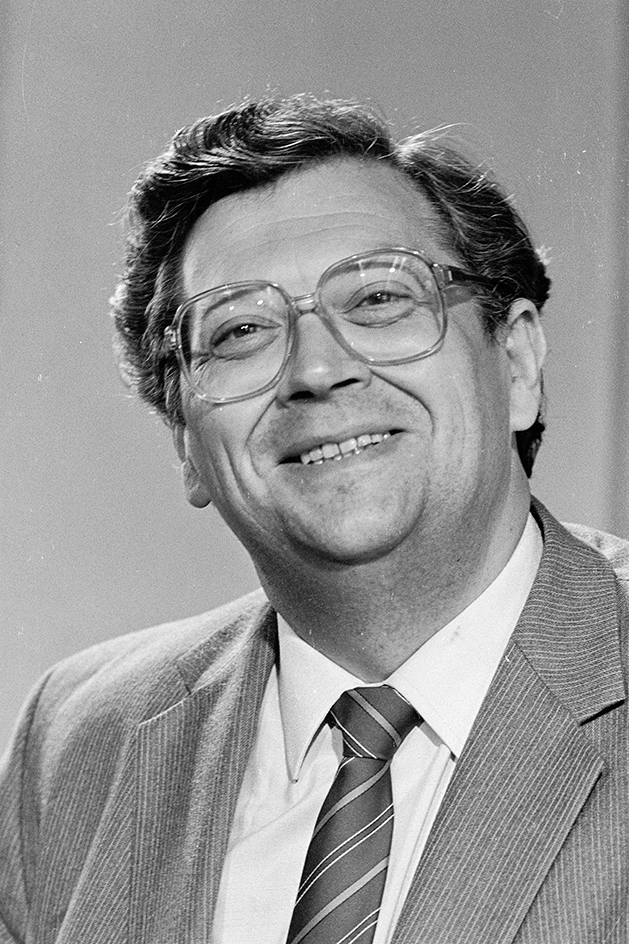Lange, << LAWNG ee, >> David Russell (1942-2005), served as prime minister of New Zealand from 1984 until 1989. He led New Zealand’s Labour Party to victory over the governing National Party in the 1984 elections. The Labour Party is a center-left political party that favors socially liberal policies. A moderate socialist, Lange favored some government ownership and some private ownership of industries. In foreign policy matters, he supported greater independence from the United Kingdom and the United States. He strongly opposed the use of nuclear weapons. Lange became famous for his sharp wit and debating skills.
Early life and family
David Russell Lange was born on Aug. 4, 1942, in Otahuhu, a suburb of Auckland on New Zealand’s North Island. He was the oldest of four children. His parents were Eric Roy Lange, a New Zealand doctor, and Phoebe Fysh Reid Lange, an Australian-born nurse. 
David Lange attended Otahuhu College, a secondary school in Auckland. He earned law degrees from the University of Auckland in 1965 and 1970. He paid for his education by working at a slaughterhouse and meatpacking plant in the Auckland suburb of Westfield. For several years, he worked as a lawyer. He often took the cases of people who could not afford to pay.
While visiting England in 1967, Lange met Naomi Joy Crampton, who worked in the office of a mission church in London. The couple married in 1968 and had three children: Roy, born in 1971; Emily, born in 1974; and Byron, born in 1976. Lange and his wife separated in 1989 and divorced in 1991. In 1992, he married Margaret Pope, who had been a member of his staff. Lange and Margaret had a daughter, Edith, in 1996.
Political career
Lange joined the Labour Party in 1963. In 1975, he ran for a seat in New Zealand’s Parliament but was unsuccessful. In 1977, he won a by-election (special election held to fill a vacancy) for the Auckland suburban seat of Mangere in the House of Representatives. He held the seat until he retired from politics in 1996. Lange quickly rose through the ranks of the Labour Party. He became deputy party leader in 1979 and party leader in 1983.
Labour won an easy victory in the July 1984 elections, and Lange became prime minister. Faced with a serious financial crisis, Lange’s government passed a number of ambitious reforms. It reorganized large sections of state-owned or state-controlled businesses. It eliminated many government controls on the economy. It also passed legislation to expand the authority of a government panel called the Waitangi Tribunal. This expansion enabled the Indigenous (native) Māori people to seek government compensation (repayment) for breaches of the 1840 Treaty of Waitangi. In addition, Lange’s government passed the 1986 Homosexual Law Reform Act, which legalized homosexual acts between adults.
Lange’s most significant contribution to New Zealand’s history was his campaign against nuclear weapons. In 1984, Lange’s government adopted a policy that excluded from New Zealand’s ports and waters all nuclear-armed ships and ships powered by nuclear fuel. The policy later became a law. In response to this action, the United States announced in 1986 that it would no longer guarantee New Zealand’s security under the ANZUS treaty. ANZUS is a collective defense treaty signed by Australia, New Zealand, and the United States in 1951.
Lange’s government also strongly opposed France’s testing of nuclear weapons in the South Pacific Ocean. The environmental organization Greenpeace had planned to use a ship called the Rainbow Warrior to protest the tests. In July 1985, however, two explosions caused the ship to sink while it was docked at Auckland. Two French army officers were arrested on charges relating to the sinking of the vessel. France apologized and paid compensation for the ship’s sinking.
The Labour Party was again victorious in the August 1987 general elections, and Lange remained prime minister. However, economic reform had become a source of controversy. Lange’s minister of finance, Roger Douglas, had carried out a program of rapid change, including the removal of many government controls over economic activity. The changes caused divisions within the Labour Party, and those divisions deepened after a stock market crash in October 1987.
In 1988, Douglas resigned as minister of finance, and the Labour Party fractured. Several party members left to create the New Labour Party, which later merged with other small parties to form the left-wing Alliance Party. The troubles of the Labour Party led Lange to resign his office on Aug. 8, 1989. Geoffrey Palmer replaced him as prime minister.
After stepping down as prime minister, Lange served one year as attorney general. He remained a member of Parliament until his retirement in 1996. Lange was awarded the Order of New Zealand, the nation’s highest honor, in 2003.
Later years
In the 1990’s, Lange developed a number of health problems relating to obesity, including diabetes and kidney disorders. In 2002, he was diagnosed with an incurable blood disorder. Lange died of heart failure on Aug. 13, 2005. In September 2008, a memorial to Lange was dedicated in his hometown of Otahuhu.
